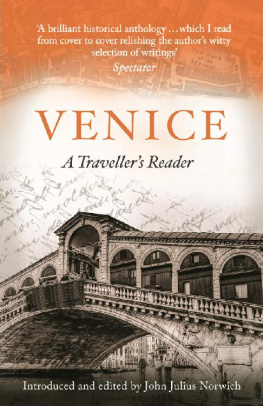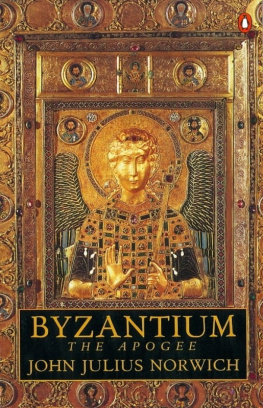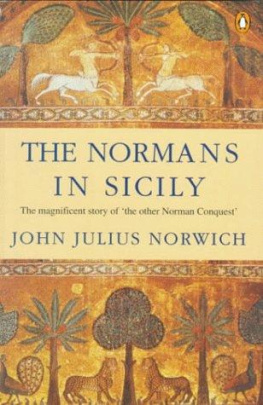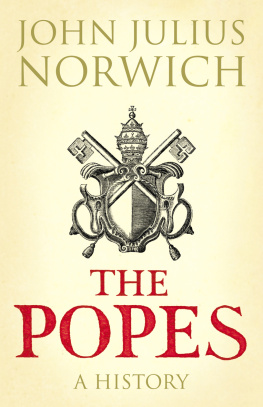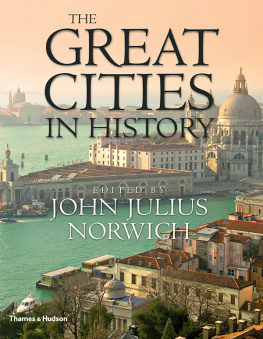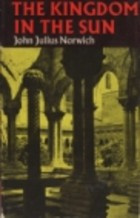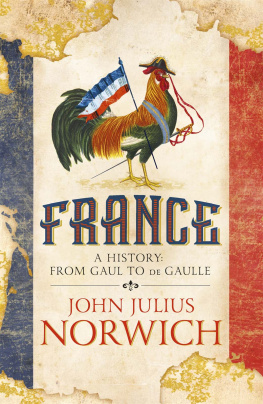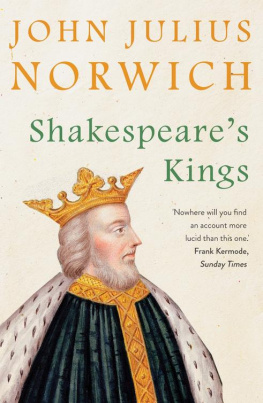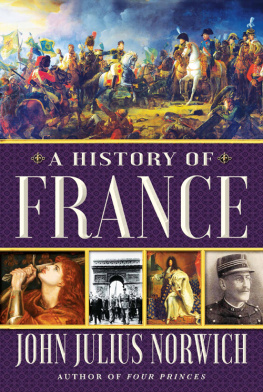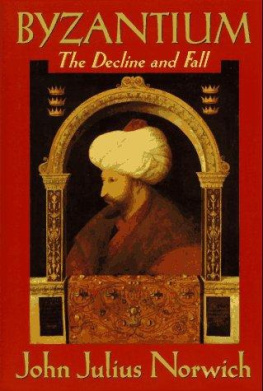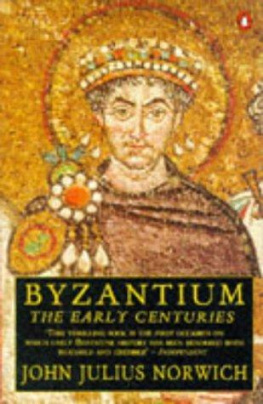John Julius Norwich - Venice: A Traveller’s Reader
Here you can read online John Julius Norwich - Venice: A Traveller’s Reader full text of the book (entire story) in english for free. Download pdf and epub, get meaning, cover and reviews about this ebook. year: 2017, publisher: Little, Brown Book Group, genre: Detective and thriller. Description of the work, (preface) as well as reviews are available. Best literature library LitArk.com created for fans of good reading and offers a wide selection of genres:
Romance novel
Science fiction
Adventure
Detective
Science
History
Home and family
Prose
Art
Politics
Computer
Non-fiction
Religion
Business
Children
Humor
Choose a favorite category and find really read worthwhile books. Enjoy immersion in the world of imagination, feel the emotions of the characters or learn something new for yourself, make an fascinating discovery.
- Book:Venice: A Traveller’s Reader
- Author:
- Publisher:Little, Brown Book Group
- Genre:
- Year:2017
- Rating:3 / 5
- Favourites:Add to favourites
- Your mark:
- 60
- 1
- 2
- 3
- 4
- 5
Venice: A Traveller’s Reader: summary, description and annotation
We offer to read an annotation, description, summary or preface (depends on what the author of the book "Venice: A Traveller’s Reader" wrote himself). If you haven't found the necessary information about the book — write in the comments, we will try to find it.
John Julius Norwich: author's other books
Who wrote Venice: A Traveller’s Reader? Find out the surname, the name of the author of the book and a list of all author's works by series.
Venice: A Traveller’s Reader — read online for free the complete book (whole text) full work
Below is the text of the book, divided by pages. System saving the place of the last page read, allows you to conveniently read the book "Venice: A Traveller’s Reader" online for free, without having to search again every time where you left off. Put a bookmark, and you can go to the page where you finished reading at any time.
Font size:
Interval:
Bookmark:
John Julius Norwich has known and loved Venice since he first visited it with his parents at the age of 16. He is the author of A History of Venice, a work first published in two volumes but now available in one, which has become the standard history of the Venetian Republic; and he has been Chairman of the Venice in Peril Fund since its inception in 1970. He lectures regularly in Britain, Canada and the USA on the art and architecture of Venice and the problems of its preservation.
Lord Norwich has made two TV films on the protection of Venice, and a five-part TV series, with Professor H. C. Robbins Landon, on the history of music in Venice over the past 500 years.
In recognition of his services to Venice he has been made Commendatore of the Ordine al Merito della Repubblica Italiana.
Other titles in the series
Moscow: A Travellers Reader
Laurence Kelly
Istanbul: A Travellers Reader
Laurence Kelly
A Travellers Reader
Introduced and edited
by John Julius Norwich
____

ROBINSON
First published in Great Britain as Venice: A Travellers Companion by Constable and Co. Ltd, 1990
Revised edition published by Robinson, an imprint of Constable & Robinson Ltd, 2002
This edition published in 2017 by Robinson
Copyright John Julius Norwich, 1990, 2002
The moral right of the author has been asserted.
All rights reserved.
No part of this publication may be reproduced, stored in a retrieval system, or transmitted, in any form, or by any means, without the prior permission in writing of the publisher, nor be otherwise circulated in any form of binding or cover other than that in which it is published and without a similar condition including this condition being imposed on the subsequent purchaser.
A CIP catalogue record for this book
is available from the British Library.
Every effort has been made to trace and contact copyright holders. If there are any inadvertent omissions we apologise to those concerned, and ask that you contact us so that we can correct any oversight as soon as possible.
ISBN: 978-1-47213-980-1
Robinson
An imprint of
Little, Brown Book Group
Carmelite House
50 Victoria Embankment
London EC4Y 0DZ
An Hachette UK Company
www.hachette.co.uk
www.littlebrown.co.uk
To Ashley and Frances Clarke whose contribution to the survival of Venice has been, and continues to be, immeasurable
I should like to thank my friend Michael Severne for permission to reproduce the letter from his uncle, Roland Burden-Muller; Julia Owen for many valuable suggestions; and Edward Chaney, co-author of A Travellers Companion to Florence, for all his encouragement and help.
I am also grateful to the following for permission to quote from works in copyright: Doubleday, Weidenfeld & Nicolson and Susan Mary Alsop for To Marietta from Paris 19451960; to Penguin for Aretino, Selected Letters translated and introduced by George Bull, for Dorothy L. Sayerss translation of Dantes Inferno, and for A. J. A. Symonss The Quest for Corvo; to Faber & Faber and G. Keynes for The Letters of Rupert Brooke and to Faber, Harcourt Brace Jovanovich and Jan Morris for Venice; To Quadrangle/The New York Times Book Co. for Elizabeth Barrett Brownings Letters to Mrs David Ogilvy edited by Peter N. Heydon and Philip Kelley; to the University of Illinois Press for Letters of the Brownings to George Barrett edited by Paul Landis with the assistance of Ronald E. Freeman; to Yale University Press and J. C. Bradley for Ruskins Letters from Venice 185152; to Wayne State University Press for John Adington Symondss Letters edited by H. M. Schneller and R. L. Peters; to Michael Meredith, Armstrong Browning Library of Baylor University and Wedgestone Press for More than Friend: the Letters of Robert Browning to Katharine de Kay Bronson; to Oxford University Press for The Letters of Charles Dickens edited by Kathleen Tillotson and for The Letters of Horace Walpole edited by W. S. Lewis et al; to Cambridge University Press for Richard Wagners My Life translated by Andrew Gray and edited by Mary Whittall; to the Folio Society and George Bull for Venice, the Most Triumphant City; to John Murray and Leslie A. Marchand for The Flesh is Frail: Byrons Letters and Journals, and to John Murray and Mary Lutyens for Effie in Venice; to Elizabeth David and Macdonald for Italian Food; to Mrs Janet Pollock for Arthur Machens translation of The Memoirs of Jacques Casanova de Seingalt; to Cassell and J. E. Norton for The Letters of Edward Gibbon; to Macmillan and Leon Edel for The Letters of Henry James; to Rizzoli, New York and Lynne Lawner for Lives of the Courtesans; to Collins, W. H. Auden and Elizabeth Mayer for Italian Journey 17861788 by J. W. Goethe; to Cecil Roth and the Jewish Publication Society of America for Personalities and Events in Jewish History; and to G. B. Parks for William Thomass The History of Italy (1549).
My most heartfelt thanks of all, however, go to my wife Mollie, who has devoted countless hours to this book and whose name should, if there were any justice in this world, be on the title page with my own.
NO CITY EVER HAD more undistinguished beginnings. Venice started life as a funk-hole a refuge for frightened men. During the great days of the Roman Empire she simply did not exist: the ancestors of the first Venetians kept wisely to terra firma, where a whole chain of splendid imperial cities had grown up around the northern and north-western shores of the Adriatic and its neighbouring hinterland. After all, who in their right mind would build a village, far less a town or city, on a cluster of soggy shoals and sandbanks rising from a malarial, malodorous lagoon? A few fishermen and salt-gatherers may occasionally have erected a hut or two amid the couch-grass; but not many, and not for long. For the rest, desolation and silence.
Then, in the early years of the fifth century, the barbarians swept down. The Goths came first, under their leader Alaric raping, burning and pillaging, laying waste everything in their path. In 402 they fell on Aquileia; eight years later they would ravage Rome. The local populations, meanwhile, had fled for their lives, seeking a refuge at once unenviable and inviolable, where their enemies would have neither the incentive nor the ability to follow them; and in the Venetian lagoon they found it. In those early days they probably contemplated an only temporary stay, expecting to return to their homes once the barbarians had passed. If so, they were disappointed. Those who attempted to do so soon discovered that they had no homes to return to; and as soon as they started to rebuild them another wave of barbarians would descend and the whole sad story would be repeated.
For the Goths were only the beginning. In 452 they were followed by the Huns under the brutal and dwarfish Attila, and the flow of refugees increased. By this time they had grouped themselves into a number of separate island communities, still technically part of the Roman Empire but for all practical purposes self-governing; and the fall of the Empire of the West, with the deposition in 476 of its last Emperor a feckless youth named Romulus Augustulus, whose double diminutive must to the imperial general Longinus nearly half a century later.
Next pageFont size:
Interval:
Bookmark:
Similar books «Venice: A Traveller’s Reader»
Look at similar books to Venice: A Traveller’s Reader. We have selected literature similar in name and meaning in the hope of providing readers with more options to find new, interesting, not yet read works.
Discussion, reviews of the book Venice: A Traveller’s Reader and just readers' own opinions. Leave your comments, write what you think about the work, its meaning or the main characters. Specify what exactly you liked and what you didn't like, and why you think so.

